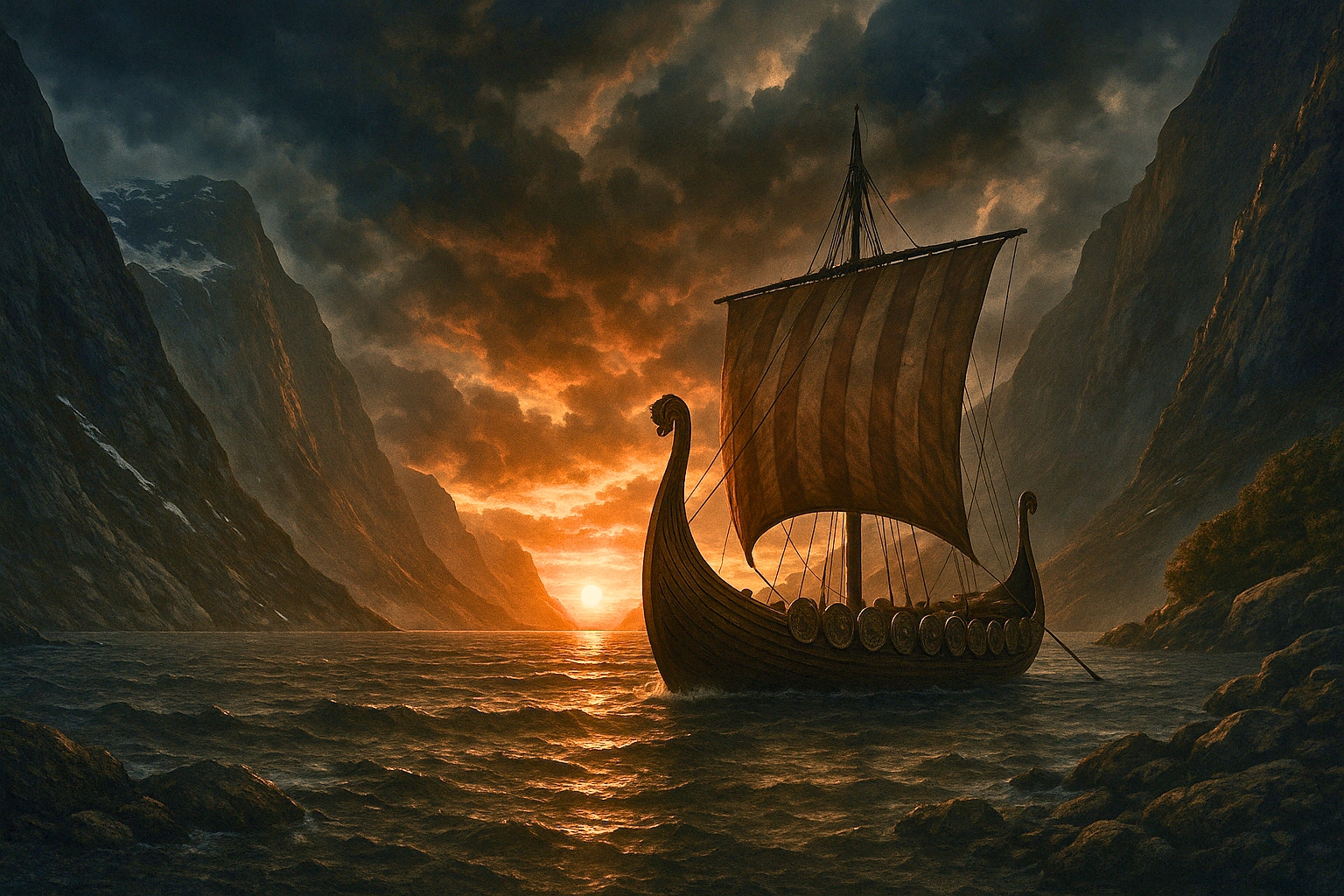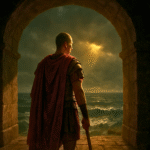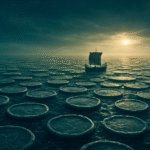I was playing a board game with friends the other night—one of those complex strategy games with alliances, resources, and betrayals. For three hours, I watched my kind, thoughtful friends transform into ruthless tacticians. A farmer who wouldn’t hurt a fly in real life bankrupted his neighbor over a trade dispute. A gentle soul I’ve known for years enacted a brilliant, cold-hearted corporate takeover to seize control of the spice trade.
Afterward, laughing over the shattered alliances, it struck me. Was this just a game, or was it a glimpse of the raw code of human nature?
“Are we, at our very core, the cooperative, idealistic explorers we dream of being? Or are we something more… complicated?”
This question, for me, is the ultimate “what if.” It’s the final boss of every utopian dream. And I find myself putting humanity itself on trial, with two of our most compelling economic visions in the witness box, and one of history’s most notorious thinkers acting as the prosecutor.
Exhibit A: What is a Post-Scarcity Economy in Star Trek?
First, let’s call the idealist to the stand: the “no money” system of Star Trek.
In this future, technology has conquered scarcity. Replicators can produce anything you desire, from a steaming cup of Earl Grey tea to a new violin. With every material need met, humanity has shed its baser instincts. Money is obsolete. We work not for pay, but for self-improvement, for the thrill of discovery, for the betterment of all humankind.
It is a beautiful, breathtaking vision. It’s the world we tell our children we’re trying to build. It’s a future powered by our better angels, where the currency is purpose and the economy runs on altruism. It’s a testament to the idea that, freed from the desperate struggle for survival, human nature will inevitably soar. But can it survive a cross-examination?
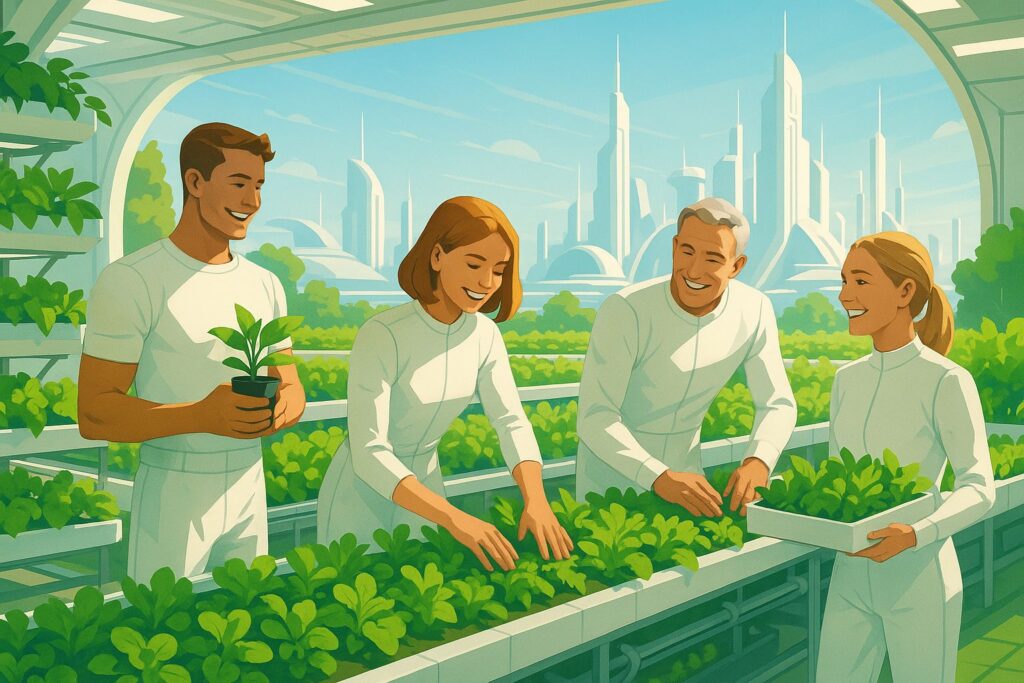
An illustration of a utopian post-scarcity economy, with people happily working together in a high-tech agricultural setting.
Exhibit B: How Does Demurrage Currency Reflect Realism?
Next, let’s call the pragmatist to the stand: the Wörgl economic model of expiring money.
This isn’t a dream of changing human nature, but a clever piece of social engineering that accepts it for what it is. As we’ve explored before, in this system, money loses value over time. It’s a hot potato.
“Hoarding it is a losing game, so your own self-interest forces you to spend it, invest it, or use it before it vanishes.”
The Wörgl system doesn’t ask you to be a saint. It doesn’t rely on your altruism. It relies on your rational desire to avoid loss. It’s a system that says, “I know you’re going to act in your own interest, so I’m going to build a machine where your self-interest accidentally benefits everyone.” It’s a world powered not by angels, but by a brilliantly designed engine that runs on our own inherent impulses.
The Prosecutor Takes the Stand: What Was Machiavelli’s Philosophy on Human Nature?
Now, the courtroom falls silent. A figure walks to the center, a man who has been observing all of this with a wry, knowing smile. He is Niccolò Machiavelli, the ultimate student of power and human fallibility. And he is here to prosecute these dreams.
He leans in and whispers his timeless, chilling assessment of humanity, found in his book The Prince: we are “ungrateful, fickle, false, cowardly, covetous.”
“He argues that any system built on the hope of our goodness is doomed from the start. “
Any society that ignores our powerful, innate drives for greed, laziness, and status is a house built on sand.
So, he turns his gaze to our two witnesses. How do they fare under the weight of his brutal realism?
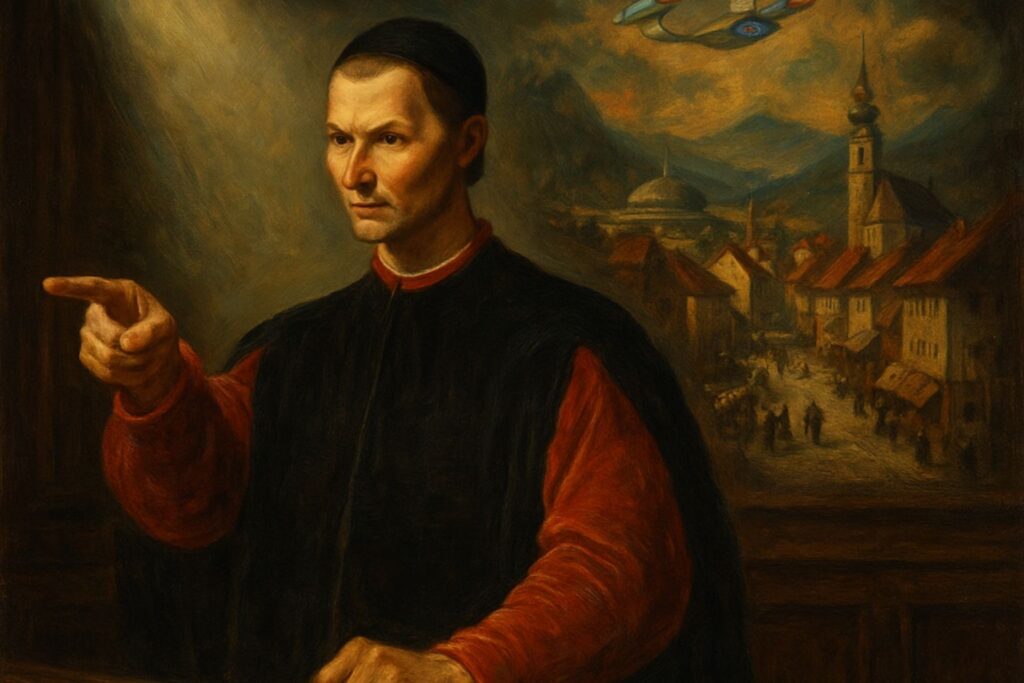
A dramatic portrayal of Machiavelli acting as a prosecutor against utopian economic ideas like Star Trek and the Wörgl model.
The Cross-Examination: Does Star Trek’s Idealism Survive Machiavelli’s Realism?
First, Machiavelli turns to the Star Trek economy. “You have no money?” he might ask. “Or have you simply changed its name?”
Even in Starfleet’s utopia, motivation without money is everywhere, but it takes a different form. The true currency of the 24th century is Reputation. Status. Power. No one works for credits, but they compete fiercely for the captain’s chair. They jockey for assignments on prestigious starships, they crave recognition for their scientific discoveries, and they build legacies. The drive to get ahead, to be more than your neighbor, hasn’t vanished at all. It has been sublimated into a hierarchy of command and prestige.
“Machiavelli would argue Star Trek hasn’t eliminated greed; it has just dressed it up in a cleaner uniform. The core engine is the same.”
Next, he turns to the Wörgl model. And here, I believe Machiavelli would not scoff. He would nod in admiration.
Wörgl is a system built for his world. It’s the ultimate expression of his principles. It doesn’t fight our nature; it weaponizes it. It concedes that we are covetous, and so it makes hoarding a fool’s errand. It assumes we can be lazy, and so it creates a powerful incentive to act. It is a system built for flawed, real human beings, not for the angels we pretend to be. It is the one system a true realist could love.
The Verdict on Human Nature: Should We Engineer Systems for Idealism or Realism?
So, what does this trial tell us? Is this a cynical, depressing conclusion about our own nature?
I don’t think so. I find it incredibly hopeful.
Perhaps greed and human nature are not bugs to be patched out of our code. Perhaps laziness isn’t a sin, but a rational desire to conserve energy.
“Perhaps ambition isn’t evil, but the engine of progress.”
Maybe the question was never “Can we become good enough for utopia?” Maybe the real question is “Can we become smart enough to build systems designed for the creatures we actually are?”
Human nature is a river. It is immensely powerful, and it will always flow downhill. A poorly designed city will see it as a destructive flood, a force to be dammed and feared. But a brilliant engineer doesn’t try to stop the river. He digs channels, builds water wheels, and uses that same unstoppable force to irrigate the fields and power the city.
The challenge isn’t to change the river. The challenge is to become brilliant engineers.
Join The Project
The inquiry doesn't end with this article. Our weekly newsletter is where The Project continues. Each week, we deliver new findings—from deconstructing ancient history to forging philosophical thought experiments. It's our expedition into the source code of the human story, delivered directly to your inbox.
We are JD Lemky. He’s a physical chemist trained in academic rigor; she’s an editor with degrees in both literature and biochemistry. We use a scientist’s skepticism and a storyteller’s eye to challenge the official history, exploring the echoes of lost worlds to find what they can teach us about our own.
